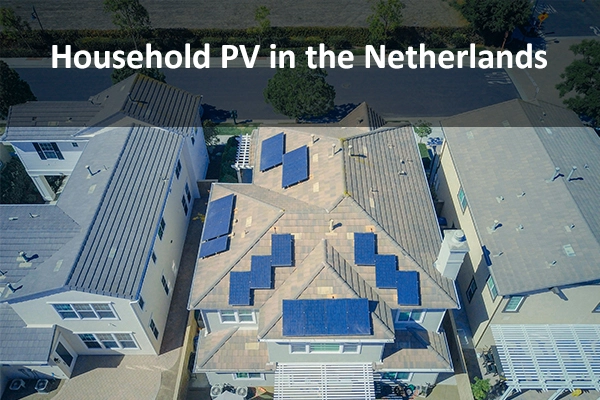The Netherlands has announced the closure of its household PV net metering program from 2027. This is a significant change in how small solar energy systems connect with and work in the country's energy grid. While designed to respond to challenges such as grid congestion and over-subsidization, the move now raises questions about the future of solar adoption in one of Europe's most solar-friendly countries.

What is Net Metering, and Why is It Being Phased Out?
The Basics of Net Metering
Net metering allows household solar PV system owners to offset their energy bills by feeding surplus electricity back into the grid. Essentially, it’s like rolling your energy credits forward: any excess power generated during sunny periods is "banked" to reduce your grid electricity usage costs later.
Why Phase It Out?
The Dutch government argues that the net metering program is overly generous, especially as solar panel prices have dropped significantly in recent years. Here are some of the key reasons:
- Grid Congestion: The surge in residential solar installations has led to excessive power being fed back into the grid, causing bottlenecks.
- Over-Subsidization: With falling panel prices, the program is viewed as a form of undue cash assistance for owners of solar PV.
- Inequity: Critics claim the system disproportionately benefits wealthier households who can afford solar installations while shifting grid maintenance costs to non-solar users.
The phased decommissioning would thus provide solar with much-needed clarity while allowing households and businesses with ample breathing room to adapt.
The Transition Plan
The Dutch government plans a gradual phase-out of net metering instead of abruptly ending it. Here’s how the transition will unfold:
- 2025-2027: Households will begin receiving lower returns on the electricity they supply to the grid.
- Post-2027: The program will be fully removed, incentivizing the transition to self-consumption solutions.
The staged process is designed to inconvenience homeowners less while solar incentives are brought into line with contemporary energy policies.
Impact on Household Solar Users
Increased Focus on Self-Consumption
With net metering gone, homeowners will be incentivized to consume more of the electricity they generate. This means adopting technologies that store or utilize solar power efficiently, such as:
- Home Battery Systems: Store excess energy for use during non-sunny hours.
- Solar Water Heaters: Utilize surplus power to heat water.
- Electric Vehicle (EV) Charging Stations: Charge EVs directly from home solar panels.
- Smart Appliances: Synchronize energy usage with peak solar generation times.
Challenges for Consumers
Not everyone has access to the tools required to boost self-consumption. For example:
- High Upfront Costs: Home batteries and heat pumps are expensive, creating financial barriers for many homeowners.
- Complex Energy Management: Managing lots of machines into an integrated energy system requires engineering consideration and sometimes expensive upgrades.
Holland Solar, the national solar energy association, has called on the government to reform its ISDE subsidy program to help consumers invest in such technologies.
The Bigger Picture: Solar Growth in the Netherlands
The Netherlands has led the pack when it comes to solar adoption, and the country had over 24 GW of installed capacity by the end of 2023. Residential solar has been this growth driver, not only last year, with additions reaching 4.82 GW in 2023 alone.
However, with the grid under pressure, the shift away from net metering represents a necessary evolution. The focus is now on decentralized energy systems, where households rely more on self-generated power rather than feeding it back into the grid.
Lessons from Other Countries
The Netherlands is not the only country to reassess net metering. Let's review what others have learned:
- Germany: The German solar market focuses heavily on self-consumption, with generous subsidies for home batteries and smart energy systems.
- Australia: As feed-in tariffs declined, solar adoption remained strong due to falling panel and battery prices.
- United States: A number of states phase out net metering, and there are debates on fair compensation of solar producers.
These examples suggest that while eliminating net metering might initially slow adoption, supportive policies and technological advancements can sustain growth.
The Future of Solar in the Netherlands
The call for steering toward energy independence will no doubt be more attractive as the net metering program comes to an end. In this regard, AI-driven energy management systems, including community energy sharing innovation, may be pivotal. One thing is certain, though: the Netherlands will not abandon its renewable energy goals. Shaking things up for those accustomed to the system, in order to create a more sustainable and efficient solar ecosystem, the government has shifted incentive structures.
 SolarInfo
SolarInfo